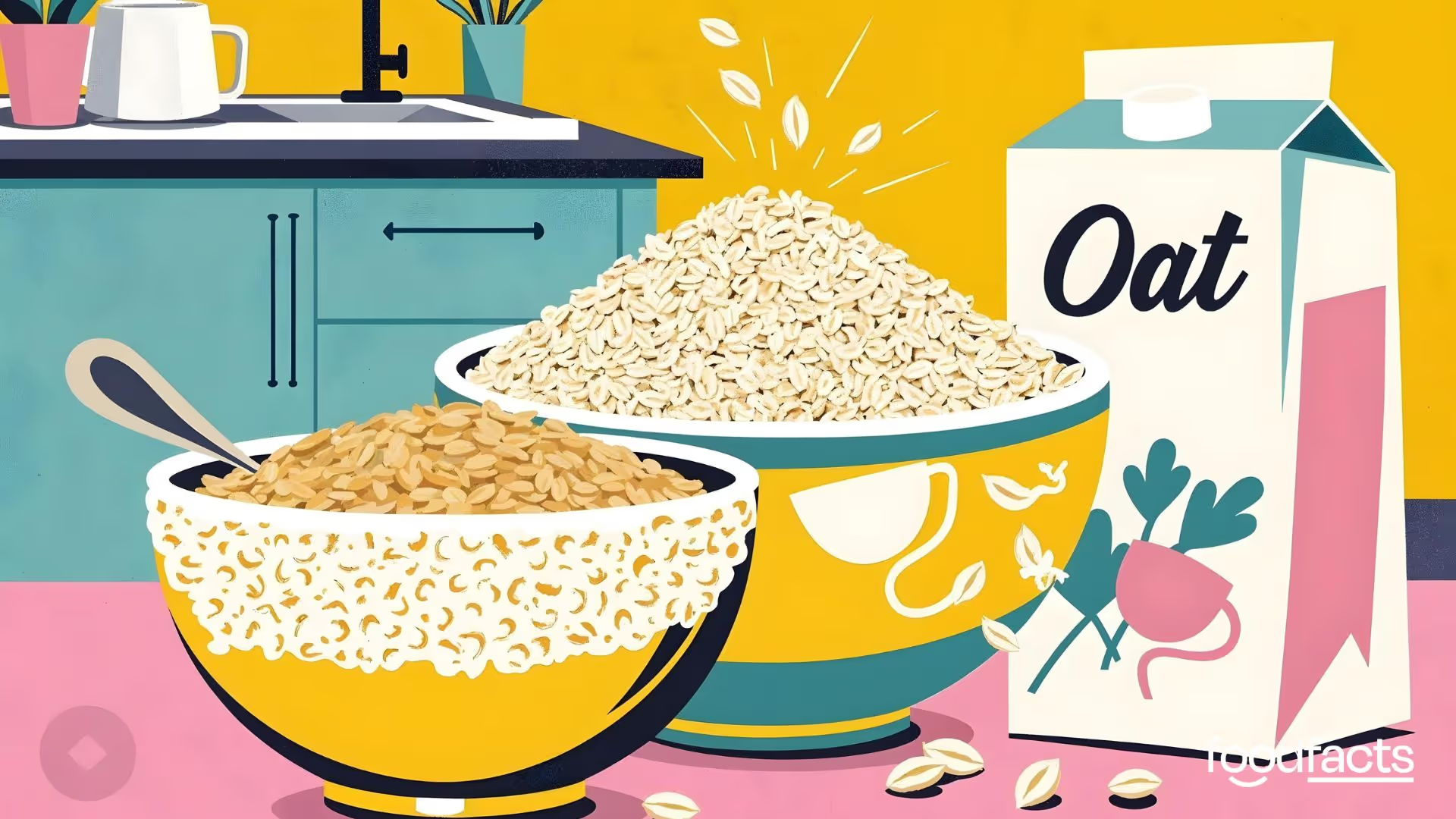
Are oats still a healthy breakfast choice? Debunking the latest social media myth





Coral Red: Mostly False
Orange: Misleading
Yellow: Mostly True
Green: True
Learn more about our fact-checking policies
On 21st April 2024 via Instagram, Sunna van Kampen made claims that oats are not a healthy breakfast if you sit at a desk all day, saying "you're gonna massively spike your blood glucose and then you're not gonna use all that energy from the carbs. Not a good breakfast if you're sitting in an office all day." We examine this claim below.
Contrary to recent social media claims, oats remain a highly nutritious breakfast option. They help regulate blood sugar, support heart health, and keep you feeling full longer. Scientific evidence supports the health benefits of oats, including lower cholesterol and a healthier gut microbiome, regardless of activity level.

Look for evidence: Reliable claims should be backed by scientific studies or data.
The Claim: “If you're gonna have a bottle of porridge in the morning and then sit at your desk for eight hours, you're gonna massively spike your blood glucose and then you're not gonna use all that energy from the carbs. Not a good breakfast if you're sitting in an office all day.”
The Facts:
Oats are widely recognised as a health-promoting food, rich in protein, fibre, and bioactive compounds. While it's true that consuming oats can cause a rise in blood sugar levels, this is a normal physiological response. For healthy adults without conditions such as diabetes, this is not something to avoid.
Moreover, oats have numerous health benefits. They contain beta-glucan, a type of soluble fiber that is responsible for much of the health benefits of oats:
- Regulate Blood Sugar: By slowing the emptying of the stomach and absorption of glucose into the blood, beta-glucan helps stabilise blood sugar levels.
- Promote Satiety: Oats can help you feel fuller for longer, which can be particularly beneficial if you're spending long hours at a desk.
- Support Cholesterol Levels: Regular consumption of oats is linked to lower levels of bad cholesterol (LDL).
- Boost Heart Health: The anti-cholesterol effects of oats contribute to overall cardiovascular health.
- Enhance Immune Function: Beta-glucan may also support a healthy immune system.
Scientific studies back these benefits, indicating that oats can play a beneficial role in a balanced diet regardless of physical activity levels. The claims made by Sunna van Kampen lack this robust scientific backing.
I wish more people would discover the health benefits of having a delicious bowl of oats for breakfast. Medical studies have shown that regular oat consumption is linked to healthy weight loss, lower blood pressure, a healthier gut microbiome, and a reduced risk of heart disease.
Similarly, Dr. Shireen Kassam, a Lifestyle Medicine Physician, supports the inclusion of oats in the diet for their numerous health benefits.
In summary, the evidence overwhelmingly supports oats as a healthy breakfast choice, even for those with sedentary lifestyles. The health benefits they provide—from regulating blood sugar to supporting heart health—remain intact regardless of activity level.
We reached out to Tonic Health for further comment on these claims but have not yet received a response. Any future statements will be considered in our ongoing coverage of this topic.
Sources
Chen, O. et al. (2021). The Role of Oat Nutrients in the Immune System: A Narrative Review. https://www.ncbi.nlm.nih.gov/pmc/articles/PMC8063794/
Martinez-Villaluenga, C. & Penas, E. (2017). Health benefits of oat: current evidence and molecular mechanisms. https://www.sciencedirect.com/science/article/abs/pii/S2214799317300073
Paudel, D. et al. (2021). A Review of Health-Beneficial Properties of Oats. https://www.ncbi.nlm.nih.gov/pmc/articles/PMC8625765/
Rebello, C.J. et al. (2016). Dietary fiber and satiety: the effects of oats on satiety. https://pubmed.ncbi.nlm.nih.gov/26724486/
Rebello, C.J. et al. (2014). The role of meal viscosity and oat β-glucan characteristics in human appetite control: a randomized crossover trial. https://pubmed.ncbi.nlm.nih.gov/24884934/


Foodfacts.org is an independent non-profit fact-checking platform dedicated to exposing misinformation in the food industry. We provide transparent, science-based insights on nutrition, health, and environmental impacts, empowering consumers to make informed choices for a healthier society and planet.
🛡️ Stand Against Nutrition Misinformation
Misinformation is a growing threat to our health and planet. At FoodFacts.org, we're dedicated to exposing the truth behind misleading food narratives. But we can't do it without your support.
Your monthly donation can:
✅ Combat viral diet myths and corporate spin
✅ Support our team of dedicated fact-checkers and educators
✅ Keep our myth-busting platforms running

Was this article helpful?

















.svg)
